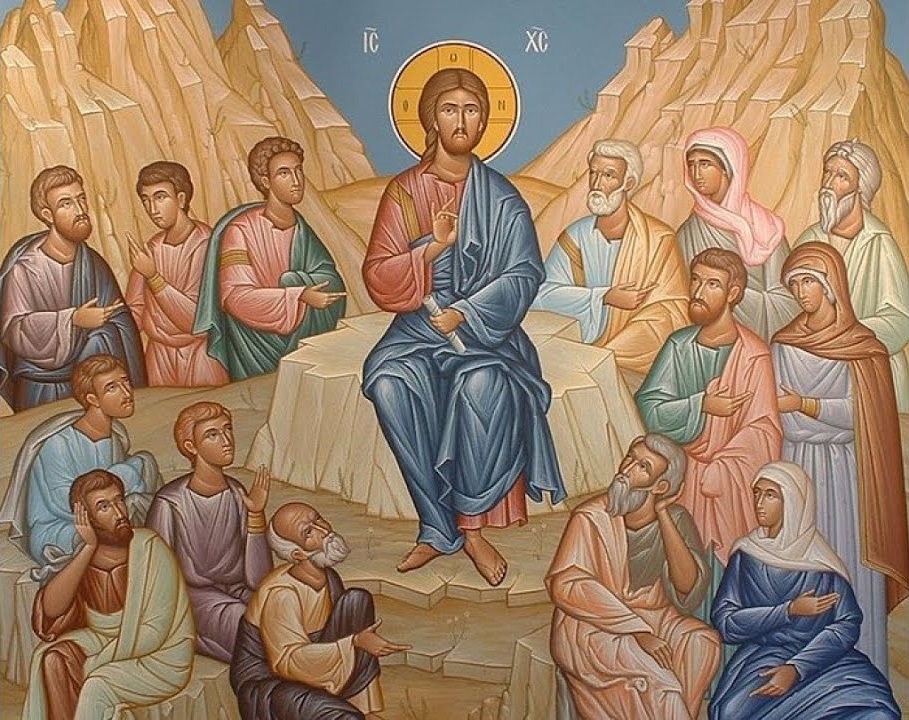In the name of the Father, and of the Son, and of the Holy Spirit, one God, Amen.
We forgive. We forgive because the Lord has commanded us to forgive, and as our Master we obey. We forgive not for the sake of the one we forgive but for our own, since while we do not forgive we are not able to heal. We forgive because God has forgiven us.
We forgive to set ourselves free, to leave aside our slavery to sin. We forgive so that we bring about, here and now, the Kingdom of God on the earth.

When I face suffering in this life I do so as a sinner, as one unrighteous, and yet when Christ, who is without sin, endures suffering, the worst and most barbaric tortuous execution, he says to each of us from the Cross—because it is on account of my sin he was crucified—“Father, forgive them, for they do not know what they do.” (Luke 23:34) If I am to be a Christian, a little Christ, I must do likewise.
We ask forgiveness because we recognise the wrongs we have done—our actions and our lack of action, our words and our silence—which have a negative effect on all around us, which cultivate sin and death in the world, which lead to our condemnation. We ask forgiveness from each other because we want to be reconciled and at one with all, because we want nothing between us.
And in both these actions—in forgiving and in asking for forgiveness—we do not make a prerequisite their response: they may not accept forgiveness, they may not be willing to forgive, yet we do them anyway, we do them because we love, we do them because,
If we forgive men their trespasses, our heavenly Father also will forgive us; but if we do not forgive men their trespasses, neither will our Father forgive our trespasses.
Forgive me.
To our crucified and risen God and Saviour Jesus Christ, who has forgiven us our sins, trespasses and debts, be all glory, honour and worship, together with his unoriginate Father and the All-holy, Good and Life-giving Spirit. Amen.
Brethren, salvation is nearer to us now than when we first believed; the night is far gone, the day is at hand. Let us then cast off the works of darkness and put on the armor of light; let us conduct ourselves becomingly as in the day, not in reveling and drunkenness, not in debauchery and licentiousness, not in quarreling and jealousy. But put on the Lord Jesus Christ, and make no provision for the flesh, to gratify its desires. As for the man who is weak in faith, welcome him, but not for disputes over opinions. One believes he may eat anything, while the weak man eats only vegetables. Let not him who eats despise him who abstains, and let not him who abstains pass judgment on him who eats; for God has welcomed him. Who are you to pass judgment on the servant of another? It is before his own master that he stands or falls. And he will be upheld, for God is able to make him stand.
— Romans 13:11–14, 14:1–4
The Lord said, “If you forgive men their trespasses, your heavenly Father also will forgive you; but if you do not forgive men their trespasses, neither will your Father forgive your trespasses. And when you fast, do not look dismal, like the hypocrites, for they disfigure their faces that their fasting may be seen by men. Truly, I say to you, they have received their reward. But when you fast, anoint your head and wash your face, that your fasting may not be seen by men but by your Father who is in secret; and your Father who sees in secret will reward you. Do not lay up for yourselves treasures on earth, where moth and rust consume and where thieves break in and steal, but lay up for yourselves treasures in heaven, where neither moth nor rust consumes and where thieves do not break in and steal. For where your treasure is, there will your heart be also.
— Matthew 6:14–21
